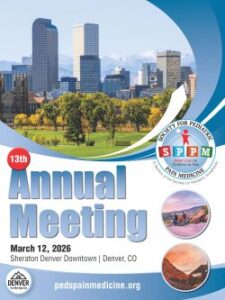Society for Pediatric Pain Medicine
Better Care for Children in Pain
The Society for Pediatric Pain Medicine (SPPM) aims to advance the quality of anesthesia care and the alleviation of pain-related conditions in children.

 SPPM 13th Annual Meeting
SPPM 13th Annual Meeting